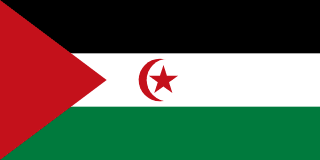Western Sahara - Economy

How is the economy of Western Sahara? Based on the information we have, Western Sahara has a Western Sahara has a small market-based economy whose main industries are fishing, phosphate mining, tourism, and pastoral nomadism. The territory's arid desert climate makes sedentary agriculture difficult, and much of its food is imported. The Moroccan Government administers Western Sahara's economy and is a key source of employment, infrastructure development, and social spending in the territory. ++ Western Sahara's unresolved legal status makes the exploitation of its natural resources a contentious issue between Morocco and the Polisario. Morocco and the EU in December 2013 finalized a four-year agreement allowing European vessels to fish off the coast of Morocco, including disputed waters off the coast of Western Sahara. As of April 2018, Moroccan and EU authorities were negotiating an amendment to renew the agreement. ++ Oil has never been found in Western Sahara in commercially significant quantities, but Morocco and the Polisario have quarreled over rights to authorize and benefit from oil exploration in the territory. Western Sahara's main long-term economic challenge is the development of a more diverse set of industries capable of providing greater employment and income to the territory. However, following King MOHAMMED VI's November 2015 visit to Western Sahara, the Government of Morocco announced a series of investments aimed at spurring economic activity in the region, while the General Confederation of Moroccan Enterprises announced a $609 million investment initiative in the region in March 2015.. Key agricultural products in this country include: .
More about the economy of Western Sahara
| Labor force | 144,000 (2010 est.) |
|---|---|
| Industrial production growth rate | NA |
| Industries | phosphate mining, handicrafts |
| Population below poverty line | NA |
| Taxes and other revenues | NA |
| Fiscal year | calendar year |
| Exchange rates | |
| Debt - external | |
| Budget | |
| Revenues | NA |
| Expenditures | NA |
| Budget surplus (+) or deficit (-) | NA |
| Household income | |
| Lowest 10% | NA |
| Highest 10% | NA |
| Imports | |
| Imports (partners) | |
| Comodities Imports force | fuel for fishing fleet, foodstuffs |
| Exports | |
| Exports (partners) | |
| Comodities Exports force | phosphates 62% (2012 est.) |
| GDP (official exchange rate) | NA |
| GDP - composition, by sector of origin | |
| Agriculture | NA (2007 est.) |
| Industry | NA (2007 est.) |
| Services | 40% (2007 est.) |
| Unemployment rate | |
All Important Facts about Western Sahara
Want to know more about Western Sahara? Check all different factbooks for Western Sahara below.
-
 Western Sahara Factbook
Western Sahara Factbook
-
 The Economy of Western Sahara
The Economy of Western Sahara
-
 Learn about the Government of Western Sahara
Learn about the Government of Western Sahara
-
 Communication in Western Sahara
Communication in Western Sahara
-
 Popular Universities in Western Sahara
Popular Universities in Western Sahara
-
 Enerny in Western Sahara
Enerny in Western Sahara
-
 Transport in Western Sahara
Transport in Western Sahara
-
 The Geography and society of Western Sahara
The Geography and society of Western Sahara
-
 The Environment of Western Sahara
The Environment of Western Sahara
-
 Military and security in Western Sahara
Military and security in Western Sahara